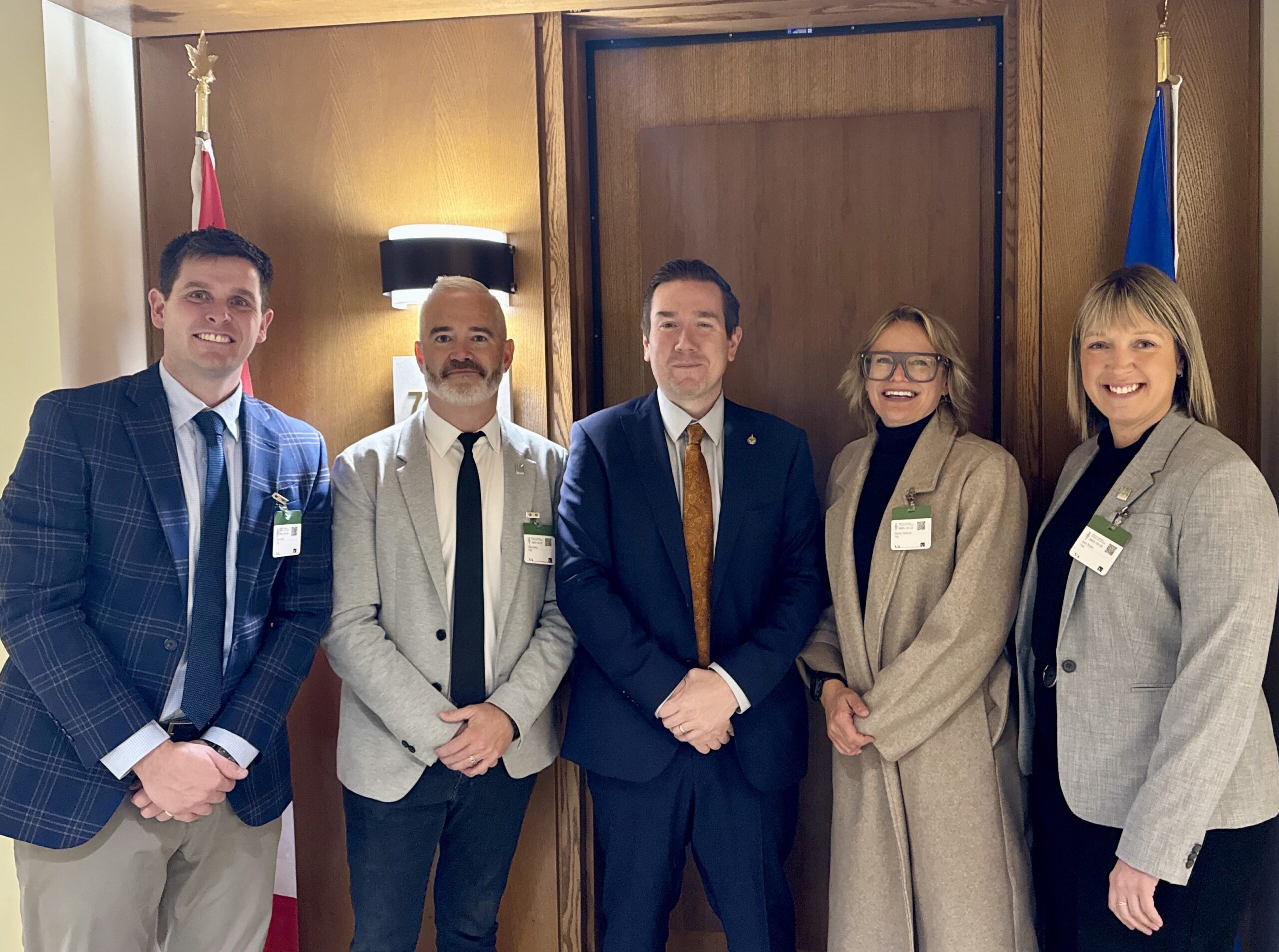Last week, AMPPE completed a highly successful advocacy mission to Ottawa — a strategic opportunity to champion the interests of Canada’s Rocky Mountain National Parks and the communities and businesses that rely on them.
The trip unfolded in two parts. First, AMPPE organized and led its own Hill Days, represented by:
- Debbie Harksen, Executive Director, AMPPE
- Alex Grant, AMPPE Board Chair & VP, Operations at Pursuit
- Mike Kelly, Executive Director, Banff & Lake Louise Hospitality Association (BLLHA)
- Jenn Porter, Director, Workforce & Destination Affairs, BLLHA
This collaborative delegation ensured the voice of mountain parks was unified, credible, and grounded in both operator experience and destination-level priorities.
In the second half of the trip, AMPPE joined the Tourism Industry Association of Alberta (TIAA) delegation, continuing to advance mountain-park issues as part of the broader provincial tourism effort.
It was a whirlwind — back-to-back conversations, productive meetings, and a warm reception across Parliament Hill and federal departments.
Why It Mattered
With more than 60% of national park visitors passing through the Rockies, and tourism now surpassing beef as Alberta’s fourth-largest export sector, the economic significance of mountain parks is undeniable. Every $1 invested by Travel Alberta generates $12.50 in private-sector investment, highlighting the tangible benefits of targeted tourism support.
It was particularly important for AMPPE to meet many new federal officials, who were eager to learn about mountain parks. Across departments, we highlighted critical issues and shared practical solutions:
- Canada Strong Pass: Officials were surprised to hear that our region is not busy in winter. AMPPE shared ideas to improve the pass, such as offering it free only to Canadians who register online (allowing data collection) and better timing to promote winter..
- Infrastructure & Funding Gaps: Federal leaders were shocked to learn that Parks Canada — despite managing more assets than almost any other department — cannot access federal infrastructure programs funded by the gas tax, nor federal housing or energy-efficiency initiatives. AMPPE advocated for funding carve-outs to ensure Parks Canada can maintain vital infrastructure, roads, and visitor services.
- New Ministerial Engagement: AMPPE met with senior representatives from the Department of Canadian Heritage, now responsible for Parks Canada. These meetings reinforced the parks’ critical role in Canada’s tourism economy and fostered relationships with new leadership.
Strengthening Relationships With Parks Canada
The advocacy mission concluded with two meaningful meetings with Parks Canada senior leadership. In a deeply appreciated gesture, Parks Canada President & CEO Ron Hallman presented AMPPE with a commemorative coin, personally noting that it symbolizes the strong friendship that has developed between Parks Canada and AMPPE.
He also expressed appreciation for AMPPE’s role in “keeping Parks accountable,” a sentiment reflecting the respectful, solutions-oriented partnership we have worked hard to cultivate.
Building Momentum for the Future
The trip provided AMPPE with a unique opportunity to advance tangible solutions and build lasting relationships. Key wins included:
- Advocating for carve-outs in federal funding programs that Parks Canada can access.
- Reinforcing the importance of winter tourism and sharing practical suggestions for improving visitation strategies and park revenue collection.
- Strengthening engagement with new federal officials across multiple departments, ensuring mountain-park perspectives are included in broader policy discussions.
Looking Ahead
This advocacy mission reflects AMPPE’s ongoing commitment to being a credible, constructive partner for Parks Canada, governments, and mountain-park operators. Building strong relationships — locally and nationally — ensures AMPPE can shape the future of visitor experience while supporting resilient communities and sustainable tourism.
We extend sincere thanks to BLLHA, TIAA, and our delegation partners — together, we demonstrated that collaboration and advocacy grounded in local expertise make a real difference for Canada’s mountain parks.


